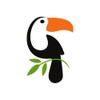Requirements:
- Resume
Tropical Herpetofauna Technician Internship; Belize
Open Period: June 15th - November 30th, 2026 Hours per week: 35 – 40 Location: Toucan Ridge Ecology and Education Society, Stann Creek Belize Experience required: none Description: The Toucan Ridge Ecology and Education Society, located in the Maya Mountains of Belize, currently has 4 apprenticeship spots open for our Fall 2024 Tropical Herpetofauna Technician Internship Program. Internships are held at the T.R.E.E.S Hosting Center, a research and education center in the Maya Mountains of Belize. The center is operated by the Toucan Ridge Ecology and Education Society (T.R.E.E.S), a small grassroots not-for-profit organization whose mandate is to conserve Belize’s natural and cultural heritage through education, conservation, and research. One way in which we meet our mandate is through hosting interns. By training international and local Belizean students in environmental and wildlife management, field research techniques and data collection protocols, knowledge on the biodiversity of Belizean fauna and flora will be gained. This knowledge will then be compiled into peer-reviewed publications, Belizean government reports and regulations, field guides, and other publications that will increase the global visibility of Belizean fauna and flora and aid in their management and ultimately their conservation. This training opportunity focuses primarily on herpetofauna (reptile and amphibian) census techniques, including acoustic and visual encounter surveys, turtle radio-telemetry, and amphibian habitat creation as well as other research projects. In the turtle radio telemetry project, interns will be trained in the use of telemetry equipment. They will track the movements of tagged turtles in both aquatic (streams and wetlands) and terrestrial (jungle areas) environments, with a focus on responses to sudden flooding conditions. Internship Overview Interns will gain hands-on experience in tropical herpetology in Belize’s Maya Mountains. Activities include identifying herps by sight and sound, conducting various field surveys (e.g. visual-acoustic transects, capture-mark-recapture), and handling reptiles and amphibians for data collection. Tasks may also involve fungal swabbing, tagging, and GPS navigation. Interns will lead a radio-telemetry study on White-lipped Mud Turtles, monitor amphibian breeding sites, maintain captive Blue-spotted Treefrog populations, and help design and implement field protocols. Depending on skills, interns may assist with ArcGIS mapping and contribute to future publications. Interns also assist with social media content and will complete a 4–5-page summary report. Duration & Cost Internships run 2–6 weeks (4 weeks recommended). Cost is $289 USD/week, covering room, weekday meals, lab access, and biologist-led training. Discounts are available for Latin American, Caribbean, and Belizean interns. Schedule Minimum 35 hours/week, primarily Monday–Friday. Night transects (7–10pm), turtle tracking and other work during the day. Weekends are free unless rescheduled project work occurs. Application: To Apply: For more information on our organization and facilities please visit our website: www.treesociety.org. To apply, please follow the link below. For any questions, contact us.
Certification or Education Required
We are looking for interns who are independent yet willing to work in a team environment. Applicants should have a certain level of herpetofauna identification skills and should be interested in improving their techniques for proper identification and survey methods applicable in the tropics. Applicants should have a desire for learning about the incredible biodiversity of Belize through systematic field surveys and data collection. This internship is perfect for budding biologists/ecologists.
Why should you volunteer for this opportunity?
The goal of this internship is to give the student various experiences in tropical herpetofauna studies that will aid the student in developing their skills for a variety of future education and employment opportunities. The main component of the project will be to work with Ecorana tutors and T.R.E.E.S staff in establishing long-term herpetofauna monitoring projects (habitat characterization, observational surveys, and mark-recapture specifically for frogs and turtles).
Requirements:
- Resume

